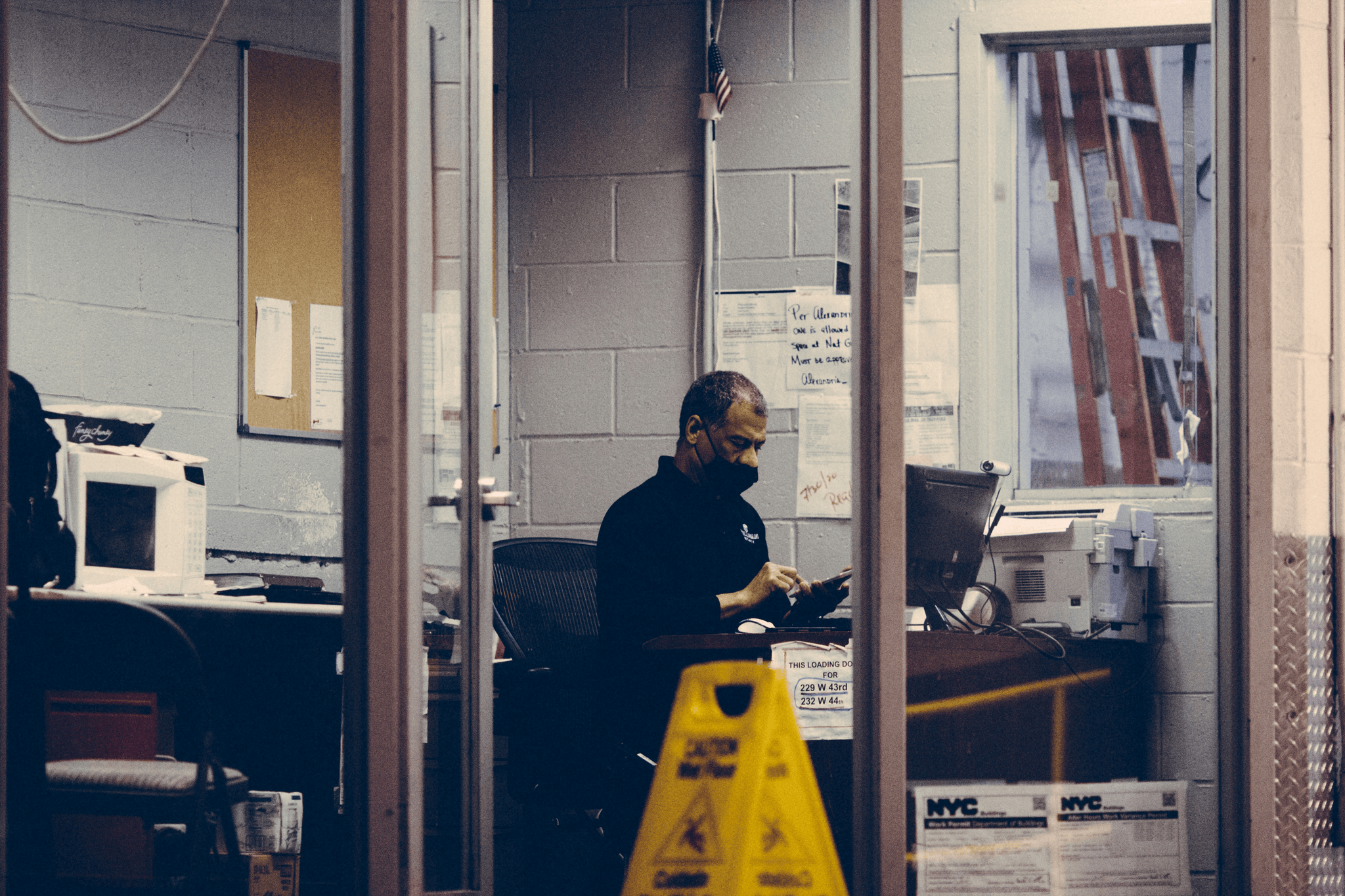Introduction

Navigating the intricate landscape of international trade, particularly when dealing with suppliers in China, requires a robust verification process. Supplier verification is crucial not only for mitigating risks but also for ensuring that your business partners align with your operational standards and ethical practices. In a world where trust can be elusive, understanding how a China lawyer verifies suppliers becomes paramount.
Importance of Supplier Verification
Supplier verification serves as the first line of defense against potential fraud and operational pitfalls in cross-border transactions. By confirming the business registration and legal standing of suppliers, companies can avoid costly mistakes that stem from engaging with unreliable partners. Furthermore, assessing reputation and creditworthiness helps establish a foundation of trust necessary for successful long-term relationships.
Role of a China Lawyer in the Process
A China lawyer plays an instrumental role in supplier verification by leveraging their expertise to navigate complex regulations and legal frameworks unique to China. They assist businesses in verifying essential documentation such as business licenses while ensuring compliance with local laws and regulations. Additionally, their insights into contractual and transaction history provide valuable context that enhances the overall evaluation process.
Overview of Verification Methods
The methods employed for supplier verification are varied and multifaceted, incorporating both traditional approaches and cutting-edge technology. From verifying business registration through government databases to assessing physical existence through site visits or remote inspections, each method contributes to an accurate picture of potential suppliers. Moreover, evaluating reputation and creditworthiness through credit reports or third-party services adds another layer of assurance that complements compliance checks within China's regulatory environment.
Business Registration and Legal Standing

When it comes to verifying suppliers in China, understanding the business registration and legal standing is crucial. This framework serves as the bedrock for establishing trust and reliability in supplier relationships. A China lawyer plays a pivotal role in navigating this complex landscape, ensuring that all necessary checks are conducted thoroughly.
Understanding Legal Framework in China
The legal framework governing businesses in China can be quite intricate, influenced by various laws and regulations that dictate how entities operate. It’s essential for a company engaging with Chinese suppliers to grasp these nuances; this knowledge helps mitigate risks associated with non-compliance or fraudulent activities. A qualified China lawyer can provide insights into local laws, making it easier to identify reputable suppliers who abide by these regulations.
Verifying Business Licenses through Government Databases
Verifying business licenses is a fundamental step in assessing a supplier's legitimacy and legal standing. In China, government databases are invaluable resources for confirming whether a supplier holds the appropriate licenses to operate legally within their industry. Utilizing these databases not only ensures compliance with laws and regulations but also reinforces your company’s commitment to working with credible partners.
The Significance of Corporate Structure
Understanding the corporate structure of potential suppliers is equally important when verifying their business registration and legal standing. The type of entity—be it a limited liability company or a joint venture—can significantly affect liability issues and operational capabilities. A thorough analysis of corporate structure helps identify any potential red flags while providing deeper insights into how well the supplier aligns with your company's values regarding reputation and creditworthiness.
Reputation and Creditworthiness

In the world of international business, reputation and creditworthiness serve as vital indicators of a supplier's reliability. When assessing potential suppliers in China, understanding their market standing can significantly influence your decision-making process. How a China lawyer verifies suppliers often involves scrutinizing these elements to ensure that you are partnering with trustworthy entities.
Tools for Assessing Supplier Reputation
There are numerous tools available for assessing supplier reputation, ranging from online reviews to industry-specific ratings. Platforms like Alibaba and Global Sources provide user feedback, while specialized databases compile information on businesses operating in China. Additionally, social media channels can offer insights into public perception, helping you gauge how a supplier is viewed by peers and customers alike.
Importance of Credit Reports in Supplier Evaluation
Credit reports play a crucial role when it comes to evaluating the financial health of a potential supplier. These documents provide detailed information about a company's credit history, payment patterns, and overall financial stability—elements that can make or break your business relationship. A thorough review of credit reports is essential for understanding the risks involved; after all, you wouldn’t want to engage with a company that has a history of financial mismanagement or defaults.
Engaging Third-Party Services for Further Insight
While self-research is valuable, engaging third-party services can elevate your verification process to new heights. Professional firms specializing in due diligence can offer comprehensive assessments that include reputation analysis and credit evaluations tailored specifically for the Chinese market. Collaborating with these experts not only enhances your understanding but also provides peace of mind when navigating the complexities of business registration and legal standing in China.
Physical Existence and Operations

In the realm of supplier verification, establishing the physical existence and operational capacity of a potential partner is crucial. This step ensures that suppliers are not just names on paper but entities capable of fulfilling business commitments. A China lawyer plays a pivotal role in this process by employing various methods to confirm that suppliers are legitimate and operational.
Conducting Site Visits and Inspections
One of the most effective ways to verify suppliers is through on-site visits and inspections. A China lawyer can facilitate these visits, allowing businesses to assess the actual working conditions, equipment, and workforce of their potential suppliers firsthand. This direct engagement provides invaluable insights into a supplier’s operations, confirming their business registration and legal standing while also shedding light on their reputation and creditworthiness.
During site visits, lawyers can also evaluate safety practices and compliance with laws and regulations that govern manufacturing in China. Observing the operational environment helps identify any discrepancies between what was promised during negotiations versus what is actually delivered. Such thorough inspections serve as a vital checkpoint in ensuring that contractual obligations can be met reliably.
Utilizing Technology for Remote Verification
In an increasingly digital world, technology offers innovative solutions for verifying supplier operations remotely. Video conferencing tools allow lawyers to conduct virtual inspections when physical visits are impractical or impossible—especially relevant in today’s global landscape where travel restrictions may apply. Utilizing drones or 360-degree cameras can further enhance remote verification by providing real-time visual evidence of a supplier's facilities.
These technological advancements help mitigate risks associated with relying solely on documentation for assessing physical existence and operations. Moreover, remote verification can streamline the process while still ensuring compliance with laws and regulations relevant to Chinese businesses. By leveraging technology effectively, a China lawyer enhances their ability to evaluate reputation and creditworthiness from afar without compromising thoroughness.
Investigating Operational Capacity and Conditions
Understanding a supplier's operational capacity is essential for assessing whether they can meet your business demands consistently. A comprehensive investigation includes evaluating production capabilities, supply chain logistics, employee qualifications, and overall facility conditions—elements critical for successful partnerships in any industry sector. Here again, the role of a China lawyer becomes indispensable as they navigate through complex regulatory frameworks while ensuring compliance with laws governing manufacturing practices.
Additionally, understanding how well-equipped a supplier is to handle fluctuations in demand or unexpected challenges provides deeper insights into their reliability as partners over time. Any signs of poor operational conditions might raise red flags regarding contractual obligations or indicate potential issues down the line that could affect your business relationship negatively. Thus, diligent investigation into these aspects not only affirms physical existence but also reinforces trust based on verified information about capability.
Compliance with Laws and Regulations

Navigating the compliance landscape in China can feel like threading a needle in a haystack, especially for foreign businesses looking to verify suppliers. Understanding the regulatory environment is crucial, as it shapes the framework within which suppliers operate. How a China lawyer verifies suppliers often hinges on their ability to interpret these laws and ensure that potential partners adhere to them.
Overview of Chinese Regulatory Environment
China's regulatory environment is multifaceted, encompassing a variety of laws that govern business operations across sectors. These regulations are designed to promote fair competition, protect consumer rights, and ensure environmental sustainability. A China lawyer plays an essential role here by helping businesses understand the intricacies of these regulations and how they apply to supplier verification processes.
Assessing Supplier Compliance with Industry Standards
Once you have a grasp on the regulatory landscape, it's time to dive into assessing supplier compliance with industry standards. This involves checking whether suppliers meet both national regulations and international benchmarks relevant to their sector. How a China lawyer verifies suppliers can include reviewing certifications, conducting audits, and ensuring that all necessary licenses are current and valid—critical steps in safeguarding your business interests.
Legal Consequences of Non-Compliance
The stakes are high when it comes to non-compliance; failing to adhere to Chinese laws can lead to severe legal repercussions for both suppliers and foreign businesses alike. Potential consequences range from hefty fines and penalties to loss of business licenses or even criminal charges against company executives. By understanding these implications through the lens of how a China lawyer verifies suppliers, you can better appreciate why thorough compliance checks are non-negotiable in your supplier evaluation process.
Contractual and Transaction History

Understanding a supplier's contractual and transaction history is essential for ensuring that they are trustworthy and reliable. This process not only involves analyzing previous contracts but also evaluating the transactional records to uncover any potential red flags. A thorough examination of these elements can provide insights into how a China lawyer verifies suppliers, ultimately helping businesses make informed decisions.
Analyzing Previous Contracts and Agreements
When assessing a supplier's reliability, the first step is to analyze their previous contracts and agreements. This involves reviewing the terms, conditions, and performance outcomes of past dealings to gauge how well they fulfill their commitments. A China lawyer can assist in this analysis by interpreting legal jargon and identifying any inconsistencies that may indicate issues with the supplier’s business registration and legal standing.
Contracts should also be evaluated for compliance with laws and regulations, as this reflects on the supplier’s overall integrity. For instance, if a supplier has frequently renegotiated terms or has been involved in disputes over contract fulfillment, it raises questions about their reputation and creditworthiness. By scrutinizing these agreements closely, businesses can gain valuable insights into the supplier's operational practices.
Evaluating Transactional Records
In addition to analyzing contracts, evaluating transactional records is crucial for understanding a supplier's financial health and reliability. These records reveal payment histories, order volumes, and any discrepancies that could signal underlying problems within the supplier’s operations or compliance with laws and regulations. A comprehensive review of transactional history can highlight patterns that may affect future dealings.
A China lawyer often employs various tools to assess these records accurately while ensuring compliance with local regulations regarding data privacy. This evaluation helps confirm whether suppliers are financially stable enough to meet ongoing demands without risking delays or defaults in delivery schedules. Ultimately, understanding transactional records provides another layer of assurance regarding a supplier's reputation and creditworthiness.
Red Flags to Watch Out For
While analyzing contracts and evaluating transactional histories can provide valuable insights into a supplier’s reliability, it is equally important to remain vigilant about potential red flags during this process. Some common warning signs include frequent contract modifications without reasonable explanations or inconsistent payment histories that suggest financial instability or poor management practices.
Additionally, if there are complaints from previous partners about unfulfilled obligations or quality issues documented in transaction records, it could indicate deeper operational challenges within the company—potentially affecting compliance with laws and regulations as well as overall business registration status. Identifying these red flags early on allows companies to make more informed decisions when selecting suppliers based on their contractual history.
In conclusion, understanding contractual and transaction history is vital for verifying suppliers effectively in China’s complex market landscape. By leveraging legal expertise from a China lawyer alongside diligent evaluation methods focused on business registration status, reputation assessment tools like credit reports, physical existence verification techniques such as site visits—and now increasingly remote technology—businesses can confidently navigate their supply chain relationships.
Conclusion

In the complex world of international trade, building trust with verified suppliers is not just a best practice; it’s a necessity. The process of supplier verification, particularly in China, involves multiple layers, including business registration and legal standing, reputation and creditworthiness, physical existence and operations, compliance with laws and regulations, and an examination of contractual and transaction history. By establishing solid relationships with verified suppliers, businesses can mitigate risks and enhance their operational efficiency.
Building Trust with Verified Suppliers
Trust is the cornerstone of any successful business relationship. When companies engage in supplier verification processes—such as checking business registration and legal standing—they lay a foundation for reliability that can lead to long-term partnerships. Furthermore, understanding a supplier's reputation and creditworthiness ensures that you are not only dealing with credible entities but also protecting your investment from potential fraud or operational failures.
The Role of AC&E in Supplier Verification
AC&E plays an instrumental role in navigating the intricate landscape of supplier verification in China. Their expertise encompasses all aspects of how a China lawyer verifies suppliers—from conducting thorough checks on business registration to assessing compliance with laws and regulations. By leveraging AC&E’s resources for evaluating physical existence and operations as well as analyzing contractual histories, businesses can make informed decisions that bolster their supply chain integrity.
Future Trends in Supplier Verification in China
As the global market evolves, so too will the methods used for supplier verification in China. Emerging technologies such as artificial intelligence will likely enhance capabilities for assessing reputation and creditworthiness while streamlining processes related to compliance with laws and regulations. Additionally, increased emphasis on ethical sourcing means that businesses must remain vigilant about verifying not just the legality but also the ethical standards associated with their suppliers’ operations.
